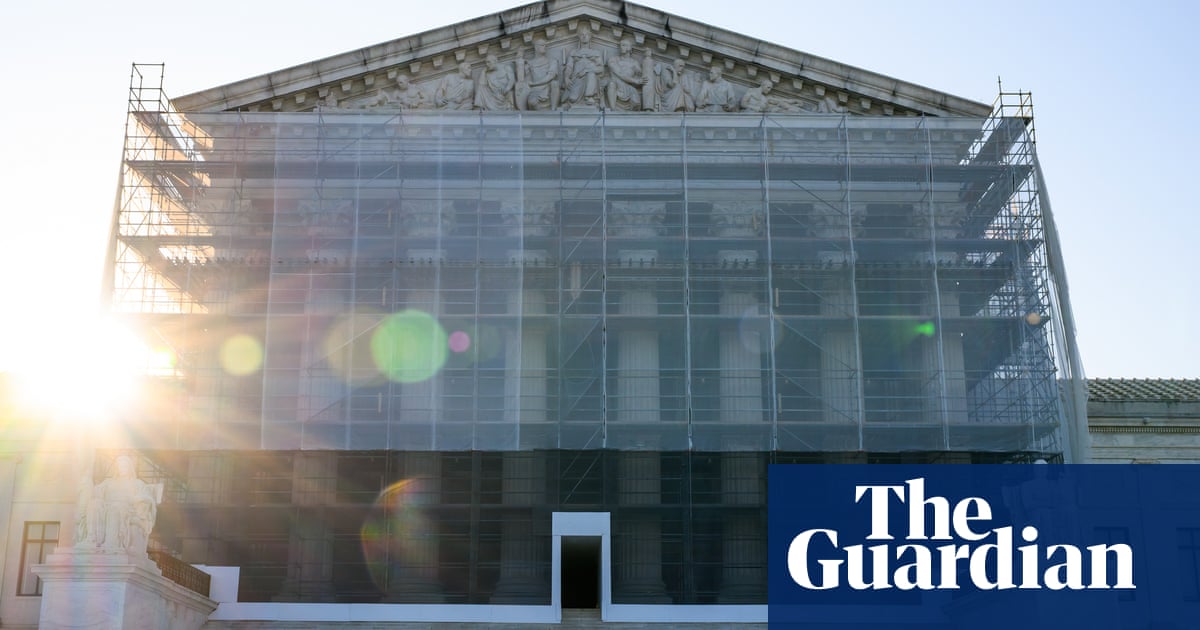TheUS supreme courtruled that a Texas law requiring thatpornographywebsites verify the ages of their visitors was constitutional on Friday, the latest development in a global debate over how to prevent minors from accessing adult material online.
“HB 1181 simply requires adults to verify their age before they can access speech that is obscene to children,”Clarence Thomaswrote in the court’s 6-3 majority opinion. “The statute advances the state’s important interest in shielding children from sexually explicit content. And, it is appropriately tailored because it permits users to verify their ages through the established methods of providing government-issued identification and sharing transactional data.” Elena Kagan dissented alongside the court’s two other liberal justices.
The Texas law required would-be visitors to sites purveying “sexual material harmful to minors” to submit personally identifying information to verify their ages and determine they were 18, of age to access a page with more than a third pornographic content, per the law’s standard. The Free Speech Coalition, a trade group representing adult entertainment professionals and companies, including Pornhub.com, xnxx.com, xvideos.com and Brazzers.com, had sued the Texas attorney general, Ken Paxton. The coalition argued that the mandate unfairly hindered the constitutional right of consenting adults to access constitutionally protected explicit material and exposed the sites themselves to privacy risks by foisting the burden of verification on them.
The court heard arguments in Free Speech Coalition Inc v Paxton in January. After two hours of oral arguments, the justices appeared divided over the law’s constitutionality. A federal appeals court had previously cleared the way for the law, lifting a lower court’s injunction. The federal judge in the case had said the law furthered the US government’s legitimate interest in preventing minors from viewing pornography. On Friday, the supreme court affirmed that decision.
The ruling sets a precedent for the two dozen states in the US that have passed age verification laws. Pornhub, widely estimated to be the most-visited site for pornographic content in the world, has made itself unavailable in17 of them. Texas, the second-most-populous state in the US with 31 million people, is the highest-profile example. The state legislature passed a law requiring the submission of identifying information to visit Pornhub and other adult sites in September 2023. In March of the following year, the site went dark in the state, greeting would-be visitors with a banner calling the law “ineffective, haphazard, and dangerous”. It remains unavailable today. In Louisiana, which has also imposed age verification laws, Pornhub is still available, but it has seen traffic there decline by 80%, which the companyattributesto the barrier of the ID requirement.
Research into age-gate statutes in the UShas foundthat they are not effective in their stated goal. Online search data showed that people in states with age verification laws sought out porn sites that did not comply with local laws so as to circumvent the age gates as well as virtual private networks to hide their locations from internet providers.
Pornhub’s parent company, Aylo, has argued in favor of content-filtering software or on-device age verification, in which a phone maker such as Apple or Samsung would determine a user’s age and pass that information to the websites a person visits, rather than forcing the site itself to obtain and host the information.
Aylo’s suite of sites returned to France last week after a three-week blackout, a protest against an age verification law there. An administrative court suspended the law while it reviewed compliance with European Union regulations.
Sign up toTechScape
A weekly dive in to how technology is shaping our lives
after newsletter promotion
The UK is likely to be the next front in the fight over age verification. Pornhub and other pornography websites have promised to implement age checks there in compliance with the Online Safety Act, which requires “robust” age-checking methods be put in place this summer.
